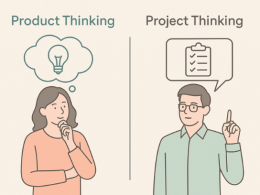A technical product manager (TPM) is a specialized role in product management that blends technical expertise with strategic decision-making. TPMs often come from engineering or technical backgrounds and focus on the intricate technical aspects of a product. They work closely with development teams, tackling complex issues like architecture, infrastructure, and scalability, while maintaining a customer-centric mindset.
While every product manager in tech must have a certain level of technical proficiency, technical product managers dive deeper into these areas. They bridge the gap between engineering and business teams, ensuring that technological feasibility aligns with business goals and customer needs.
What Does a Technical Product Manager Do?
A technical product manager often works on the technical backbone of a product. They thrive in roles that demand rigorous understanding of systems, algorithms, and architecture. These roles typically exist in larger organizations with specialized product management teams or in tech-heavy domains such as APIs, machine learning, or developer platforms.
Unlike general product managers, TPMs are frequently involved in:
- Evaluating APIs and integrations.
- Reviewing engineering estimates and technical specifications.
- Assessing risks in infrastructure and scalability.
- Collaborating with technical teams to ensure realistic roadmaps and implementation.
This deep involvement ensures a well-rounded strategy, tackling both technical feasibility and business objectives.

Key Responsibilities of a Technical Product Manager
Here are common responsibilities found in a technical product manager’s job description:
Customer and Team Collaboration
- Uncover and translate customer needs into technical requirements.
- Collaborate effectively with internal teams, including developers, architects, and QA professionals, to ensure shared understanding.
Industry and Competitor Analysis
- Research technical trends and assess emerging technologies for potential impact.
- Regularly evaluate competitors to identify technical gaps and opportunities.
Technical Documentation and Training
- Provide training for internal teams and customers on the product.
- Serve as the product’s technical evangelist to the developer community.
Risk Management and Testing
- Assess and address technical risks proactively.
- Define and oversee success criteria for testing and product acceptance.
Data Analysis and Optimization
- Utilize database queries to analyze performance indicators and evaluate experiments.
- Facilitate beta tests and feedback loops.
How Does a Technical Product Manager Differ from a Product Manager?
The distinction between product manager and technical product manager lies in their focus areas.
| Aspect | Product Manager (PM) | Technical Product Manager (TPM) |
|---|---|---|
| Focus | Business strategy, market positioning, and customer needs. | Technical implementation, scalability, and integrations. |
| Responsibilities | Pricing, packaging, messaging, and sales enablement. | Reviewing technical specifications, architecture, and risk management. |
| Team Collaboration | Works with sales, marketing, and customer success teams. | Collaborates closely with development and engineering teams. |
| Technical Involvement | General technical understanding is required. | In-depth technical expertise, particularly in APIs, infrastructure, and algorithms. |
| Overlap | Prioritization, roadmapping, customer research. | Shares these areas with PMs but through a technical lens. |
| Products Managed | Consumer-facing experiences or business features. | Backend systems, APIs, or developer tools |
Technical Product Manager vs. Product Owner vs. Scrum Master
| Aspect | Technical Product Manager (TPM) | Product Owner (PO) | Scrum Master (SM) |
|---|---|---|---|
| Primary Role | Manages both technical and business aspects of the product lifecycle. | Focuses on the product backlog and priorities within the Scrum framework. | Facilitates Agile processes and removes team impediments. |
| Collaboration | Bridges the gap between engineering and business teams. | Works closely with development teams to guide product vision. | Ensures team adherence to Scrum principles and timelines. |
| Focus Area | Balances customer needs with technical implementation. | Delivers customer value through well-defined user stories and backlog prioritization. | Supports team productivity and fosters Agile collaboration. |
| Technical Expertise | Requires deep understanding of technical systems. | May have technical knowledge but primarily focuses on business outcomes. | Technical expertise is not mandatory. |
| Responsibilities | Reviews technical specs, manages scalability, evaluates APIs, and mitigates risks. | Maintains and prioritizes the product backlog, ensuring clarity of requirements. | Coaches the team, conducts retrospectives, and ensures smooth sprints. |
| Key Deliverables | Product roadmaps and detailed technical documentation. | Refined backlog items and sprint planning. | Scrum artifacts like burndown charts and team productivity metrics. |
When Should You Hire a Technical Product Manager?
Technical product managers are typically hired in organizations where:
- The product has a highly technical focus, such as developer tools, APIs, or infrastructure products.
- The product management team has grown large enough to support specialization.
A TPM can act as a subject matter expert (SME) for technical initiatives, ensuring decisions are informed by a deep understanding of technical constraints and opportunities.
Pros and Cons of Hiring a Technical Product Manager
Pros:
- Better alignment with engineering teams.
- Improved ability to evaluate technical risks and opportunities.
- Enhanced understanding of product scalability and infrastructure needs.
Cons:
- Overemphasis on technical aspects may detract from customer and business priorities.
- Risk of neglecting broader product management responsibilities like marketing and go-to-market strategies.
Career Path for Technical Product Managers
A technical product manager role is a promising entry point for engineers and computer science graduates aiming to transition into general management or product leadership. Both technical and non-technical product managers can ascend to senior roles, provided they balance their technical expertise with business acumen.
Conclusion
Technical product managers are invaluable assets to any product management team, offering a unique perspective that bridges technical expertise with customer-focused and business-oriented strategies. Unlike their more marketing-driven counterparts, technical product managers excel in translating complex technical concepts into actionable insights, ensuring that solutions are both innovative and realistic. By leveraging new technological advancements, they can unlock possibilities that drive product excellence while staying grounded in feasibility.
Their role as a bridge between technical and non-technical teams cannot be overstated. By communicating with engineers and developers on equal technical footing, technical product managers build trust, foster collaboration, and accelerate the development of robust solutions to address customer needs and business challenges. This ability to navigate both worlds leads to faster, more innovative, and better-aligned outcomes.
Ideally, organizations should pair technical product managers with business-facing product managers to create a holistic product strategy that captures all facets of success—from market needs to seamless implementation. However, relying solely on technical product managers could risk neglecting critical aspects such as go-to-market strategies and broader business priorities.
For ex-developers, computer science graduates, or engineers looking to pivot into business-oriented roles, technical product management offers an exciting career path. It provides the opportunity to leverage technical expertise while developing essential business acumen. In cases where deep technical knowledge is essential for shaping product strategy, technical product managers often emerge as the ideal candidates to balance technical depth with strategic vision.
With their ability to integrate technical nuances into the broader product narrative, technical product managers elevate the team’s capabilities and help create products that truly resonate with customers and meet business goals.
 Pin
PinFor anyone interested in following a similar career path, pursuing a comprehensive product management program can help cultivate the skills needed to transition successfully into executive roles. E&ICT IIT Guwahati’s product management course ~ Executive Program in Product Management offers a deep dive into the core competencies required for product managers to thrive, providing invaluable insights into product strategy, leadership, and data-driven decision-making.







